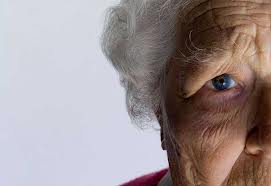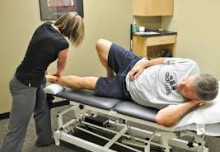 If you are a caregiver to an older adult, you may have noticed some of the changes in their bodies, like the wasting of their muscle mass. They may have lost some upper body strength, some of their former endurance in their legs and some of the spring in their step. Muscle cells simply begin to break down over time, but older adults who work out can preserve a much greater percentage of their strength and muscle performance than those who do not exercise.
If you are a caregiver to an older adult, you may have noticed some of the changes in their bodies, like the wasting of their muscle mass. They may have lost some upper body strength, some of their former endurance in their legs and some of the spring in their step. Muscle cells simply begin to break down over time, but older adults who work out can preserve a much greater percentage of their strength and muscle performance than those who do not exercise.
Well, your brain and nervous system run pretty much the same path as the muscle systems as a person ages. The neurons which comprise the nervous system also tend to atrophy, and some nervous pathways just don’t work like they did in a younger body. But a person may maintain their mental agility by mentally working out just as physical ability can be preserved and enhanced by hitting the gym. Research shows that older adults who remain socially engaged do better mentally over time than more isolated individuals. Those who read or work crossword puzzles also do better than people who simply watch television or other less-engaging mental activities.
There are, of course, factors that cannot be controlled by just more aggressively working out one’s mind. Alzheimer’s disease and some other forms of dementia will simply intervene and wreck havoc with one’s faculties. Other hormonal shifts or chronic diseases also can be the culprits which rob a person of their intellectual capabilities. A person develops hypothyroidism during their career, for instance, is at risk for a whole host of unfortunate side effects if they do not maintain their balance with thyroid supplements. One of those side effects is dementia-like symptoms.
Unchecked infections, particularly those of the urinary tract also can cause sudden onset of delirium, so it is important to track the big picture and to also look for other sides of such an infection such as frequent or painful urination. Also, the ability to intellectually process or aberrant behavior can be caused by out of control diabetes. Circulatory or lung issues may starve the brain of much-needed oxygen, manifesting itself in odd behavior or confusion. Mini-strokes – sometimes referred to as transient ischemic attacks or TIAs – also can manifest themselves as confused mental processing or language difficulties. And poor nutrition may impede the healthy function of an older person’s brain and nervous system.
So, if you are a caregiver, here are some useful steps that I as a geriatric care manager recommend you take to monitor your older loved one’s mental health:
- be aware of how much real exercise your older loved one gets routinely;
- be alert to signs of isolation, social disengagement or depression;
- note regularly how well your loved one eats at family meals and how well stocked their pantry and refrigerator are; and
- notice how quickly any given change develops – chances are that the more quickly symptoms show themselves, the less likely the condition is to be dementia.
Remember, getting older is inevitable, but deteriorating is not. Keep a sharp eye for how sharp your older loved one is.
Charlotte Bishop is a Geriatric Care Manager and founder of Creative Care Management, certified professionals who are geriatric advocates, resources, counselors and friends to older adults and their families in metropolitan Chicago. Please email your questions to info@creativecaremanagement.com.






